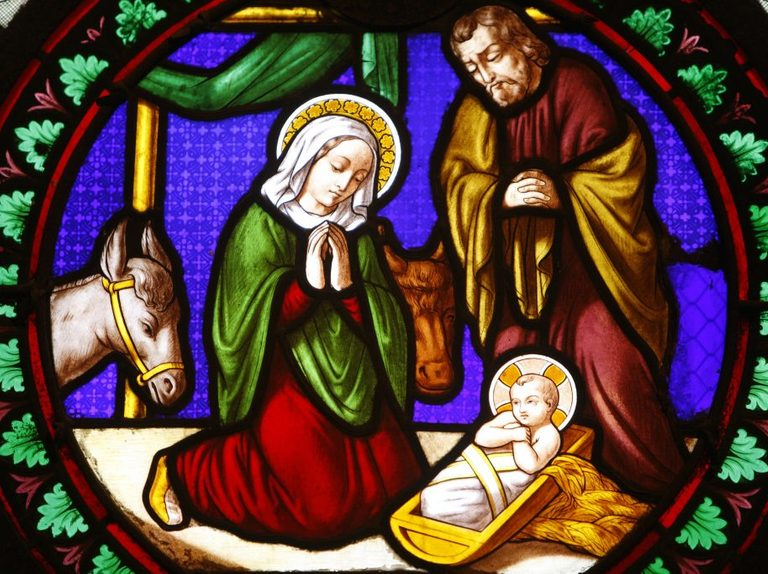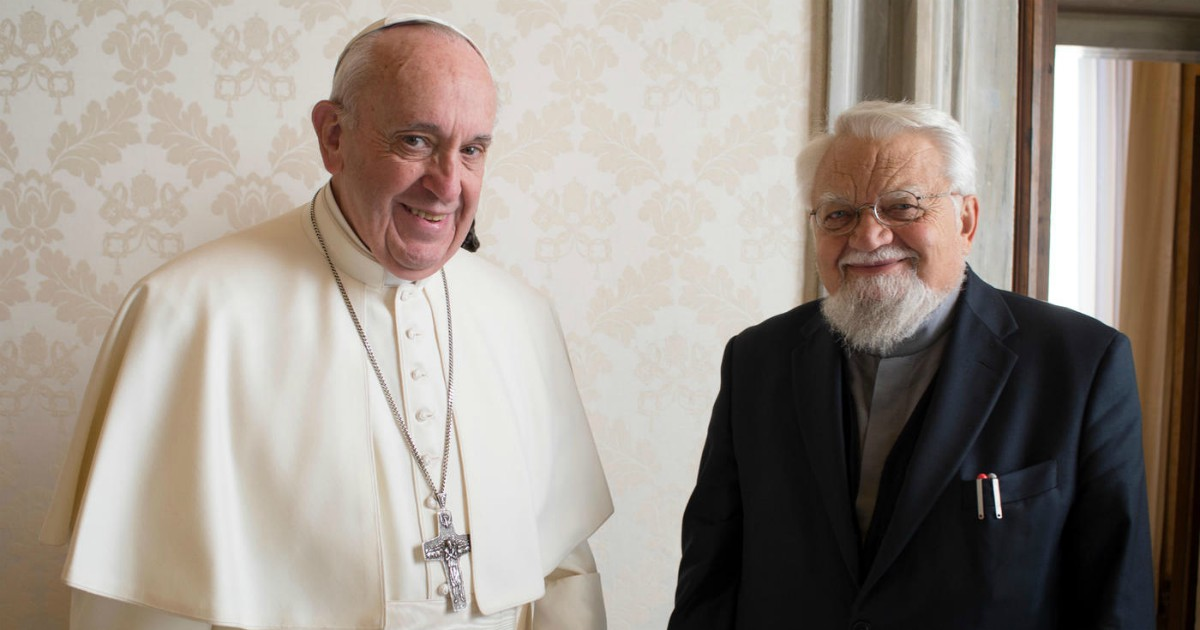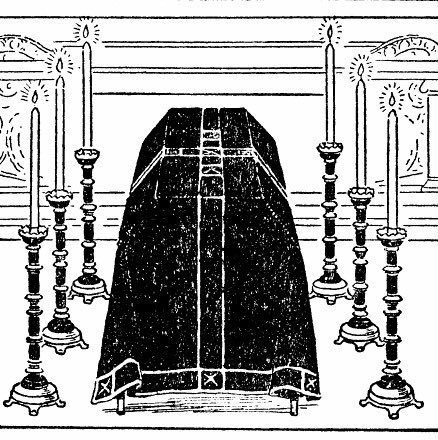I have said before that I only very rarely cut and paste blogs from American traditional blogsites. The following appeared on today's Rorate Caeli blogsite. It is interesting because it sums up what I have experienced personally since the publication of Traditiones Custodes and the equally dire responsa to the dubia submitted following the publication of that document. Priests in this diocese who frankly wouldn't touch the old Mass with a stick have expressed their horror at these two documents which opened up wounds which were healing and seemed to revitalise those liturgy wars which Pope Benedict sought to end. In fact TC and the responsa have seemed to have the opposite effect to what was intended as this article testifies. Very few bishops appear to have instigated much to change the status quo established by Pope Benedict apart from a few hotheads in the Americas.
When you’ve lost Enzo Bianchi…
Bianchi is well known as the founder of the “ecumenical” monastic community of Bose. He was removed as lay prior a few years ago not due to personal scandal, but to unclear issues of "the exercise of authority". Regardless, he has always been a consistent voice for radical liberalism in Catholic Italy, and a staunch defender of all things Francis.
Up until now.
Even Bianchi is shocked and embarrassed with the mistreatment and shunning of Traditional Catholics in the current pontificate. In the current issue of "Vita Pastorale", the also very "progressive" monthly of "progressive" Italian Catholics, Bianchi had some choice words regarding a Church that listens and wants dialogue with everyone -- everyone, except Traditionalists:
***
Ecclesial communion
Mass cannot be a place of contestation and fraternal division.
And the liturgy if it is not celebration of the Gospel cannot attract anyone. Vita Pastorale - 10 November 2022
By Enzo Bianchi
Pope Francis writes in his apostolic letter Desiderio desideravi that the tensions, unfortunately present around the celebration, cannot be judged as a simple divergence of sensibility towards a ritual form, but that they should be understood as ecclesiological divergences. This is why he felt it his duty to affirm that "the liturgical books promulgated by the Holy Pontiffs Paul VI and John Paul II in comparison with the decrees of the Second Vatican Council are the only expression of the lex orandi of the Roman Rite" (TC, art. 1).
The expression is strong and peremptory, but it certainly does not deny that the Vetus Ordo in force until the Liturgical Reform was in those centuries an expression of the lex orandi of the Roman Rite.
Certainly the current Catholic liturgy, which in any case always and continually needs reform, because the church is semper reformanda, expresses the prayer of the Roman Rite, but above all it expresses the faith of the church today, a faith in tradition, but deepened, enriched, because the liturgy grows with its ever-renewed celebration. It happens for the liturgy what happens for the Word of God: Divina Scriptura cum legente crescit!
On the other hand, everyone should be reminded that tradition is what transmits the foundation of faith. The danger is to attach to traditions and not to what they transmit. A tradition does not live if it is not renewed.
This is why Pope Francis, in Desiderio desideravi, reiterates that the mandate he received as successor to the apostle Peter requires him to guard and confirm Catholic ecclesial communion in a relentless search for unity. But it escapes no one that this unity to which the whole church must strive, and which will be full only in the éschaton, turns out to be contradicted by portions of the faithful who want to be and say they are faithful to tradition, and most recently broken by the reality born of the schism of Msgr. Marcel Lefevre. It is true that in Italy this presence of traditionalists is very limited and circumscribed, and for this reason the Italian church does not pay much attention to it, but we know well that in other countries - especially in France, Germany and the United States - traditionalists constitute a well-attested minority, not small and very effective in terms of communication and visibility. In a Catholic diaspora, among fewer and fewer Catholics, their presence appears significant and capable of expressing itself with persevering militancy.
It should be made clear right away that this is a variegated presence, showing different faces, different styles, different ways of being in the ecclesial communion, with very different ways of struggling to continue to exist: from a thoughtful and mild criticism, to an almost continuous contestation, to a delegitimization of the Catholic Church, Pope Francis and the bishops. Sometimes we are witnessing the mutation of a dutiful and filial criticism into a harsh and convinced accusation of betrayal of the faith, and therefore an accusation of heresy.
The situation is serious, and it is time to stop smirking at this portion of the church, or even mocking and despising it. Practicing ecumenism with so many Christian communities, sometimes severely impoverished of the core of faith in Christ, and not knowing how to dialogue and walk even with traditionalists is certainly not a sign of authentic fraternal charity, nor of awareness that we are united by the unum baptisma, the one baptism, which makes us brothers and disciples of Jesus Christ.
Can we come to a serene and mild discernment of this reality? In my existence as a Catholic monk and Christian, always attentive to such diverse life in the churches, just as I have always attended churches and monasteries of non-Catholic but Orthodox or Reformed Christian communities, so I have also always attended communities or monasteries that wishing to be faithful to the tradition prior to the liturgical reform have obtained the possibility of continuing to live the liturgy by celebrating it with the Vetus Ordo. It was certainly not enough for me to contemplate, participate in and enjoy the beauty of the rites and Gregorian chant, but I looked attentively at the human and spiritual life of those communities, and I always noticed a sincere love for the liturgy, a serious and deep fidelity to the monastic tradition, lived with evangelical intention, rich in initiatives and work to live the condition of all men, a common life capable of great charity. I therefore sent my brother monks to the French abbey of Le Barroux, a thriving community, to learn how to bake bread, and in my sojourns in this and other traditionalist monasteries, I was able to verify that even with them "it is beautiful and sweet to live together." I felt they were simply brothers, and I confess that I found myself better among them than in some monasteries that claim to be faithful to Vatican II but live a non-monastic religious residence life.
The interview that the new abbot of Solesmes gave after his audience with Pope Francis on Sept. 5, 2022, remains significant. Dom Geoffroy Kemlin heads a congregation of monasteries in which some celebrate with the preconciliar Vetus Ordo while others follow the reform of Paul VI, in force throughout the Latin Catholic Church. It was therefore incumbent on him to make the Pope aware of the reactions to Traditionis custodes that had been recorded in France and to ask him how he should deal with the application of Motu proprio in his monasteries. Pope Francis in this regard would have told him that it is really up to him, the abbot of Solesmes, to make discernment, and it is not up to his person, even if he is the pope, because he lives two thousand kilometers away. Literally, "You are a monk, and discernment is proper to monks. I tell you neither yes nor no, but I let you discern and make a decision." Advice, this, that the Pope also gave to some French bishops, and this tells us that what the Pope really wants is unity, which does not prevent a diversity of rite as long as the Catholic faith of the Eucharistic mystery is honored.
In an audience with Pope Francis in 2014, the Pope asked me what I thought of the traditionalists, and I told him, "Your Holiness, if they accept the Second Vatican Council, if they really accept your ministry as the successor of Peter, if they declare valid the liturgical reform and the Eucharist normed by Paul VI, let them live... The church must accept a plural communion, it can no longer be monolithic in forms."
I continue to remain of the same opinion after all these years in which the Eucharist from being a bond of unity has become a cause of division. And for this, responsibility must be taken not only by those who fall back into nostalgia for the past - "indietrists"[backwardists], the Pope calls them - but also by those who with the traditionalists have not been clear, have been duplicitous and ambiguous, pushing them without appearing on positions of contestation and rupture with the church.
Has Ecclesia Dei always acted with truthfulness, loyalty, transparency in weaving a dialogue with these portions of the church? And some cardinals and bishops on whose side was it in the post-Council period: adhering to Vatican II and the resulting reform or criticizing it to the point of diminishing its authority?
We are already experiencing so much tension and opposition in the church today that we cannot afford even the loss of Eucharistic peace. Mass cannot be a place of contestation and fraternal division, and for a path of true communion to open up, it is more necessary than ever that the celebration of the Novus Ordo be practiced avoiding sloppiness, banality, and ugliness. Currently, the situation makes it really tiring for many Catholics to attend the liturgy to draw spiritual fruits from it. There is too much prominence of the presbyter, too much verbiage, poorly edited and undignified chants, homilies that now feed almost only on the humanities, psychology, art history: these enchant everyone but convert no one.
In my opinion, the situation is dramatic and I understand how lovers of tradition always fail to accept the Novus Ordo, but remain anchored to the ancient rite that should never be despised and devalued. Liturgy, if it is not an ordered mystery, if it is not beautiful even in its simplicity, if it is not a celebration of the Gospel, it cannot attract anyone, not even through grace. Catholic unity, then, cannot and must not be uniformity but multiform harmony, plural communion, in which each and all find possibilities for living participation. Traditionis custodes and Desiderio desideravi should be an invitation for all to renew Eucharistic faith through an evening and beautiful celebration of the Eucharist lived as communion and not as an occasion for ecclesial division. [Emphases added]
***
Rorate Note: Of course, no open criticism, and a tentative acceptance of the motu proprio (after all, he is no traditionalist), but filled with the strongest criticism one could find from an ally of Francis. And, in a sense, that is what should be expected from all truly “liberal” Catholics (in the correct meaning of the word liberal). Unfortunately, most liberals have suddenly become hyperpapalist authoritarians, during this pontificate only, which reveals their liberalism was always a sham — and that they really are violent revolutionaries.




















